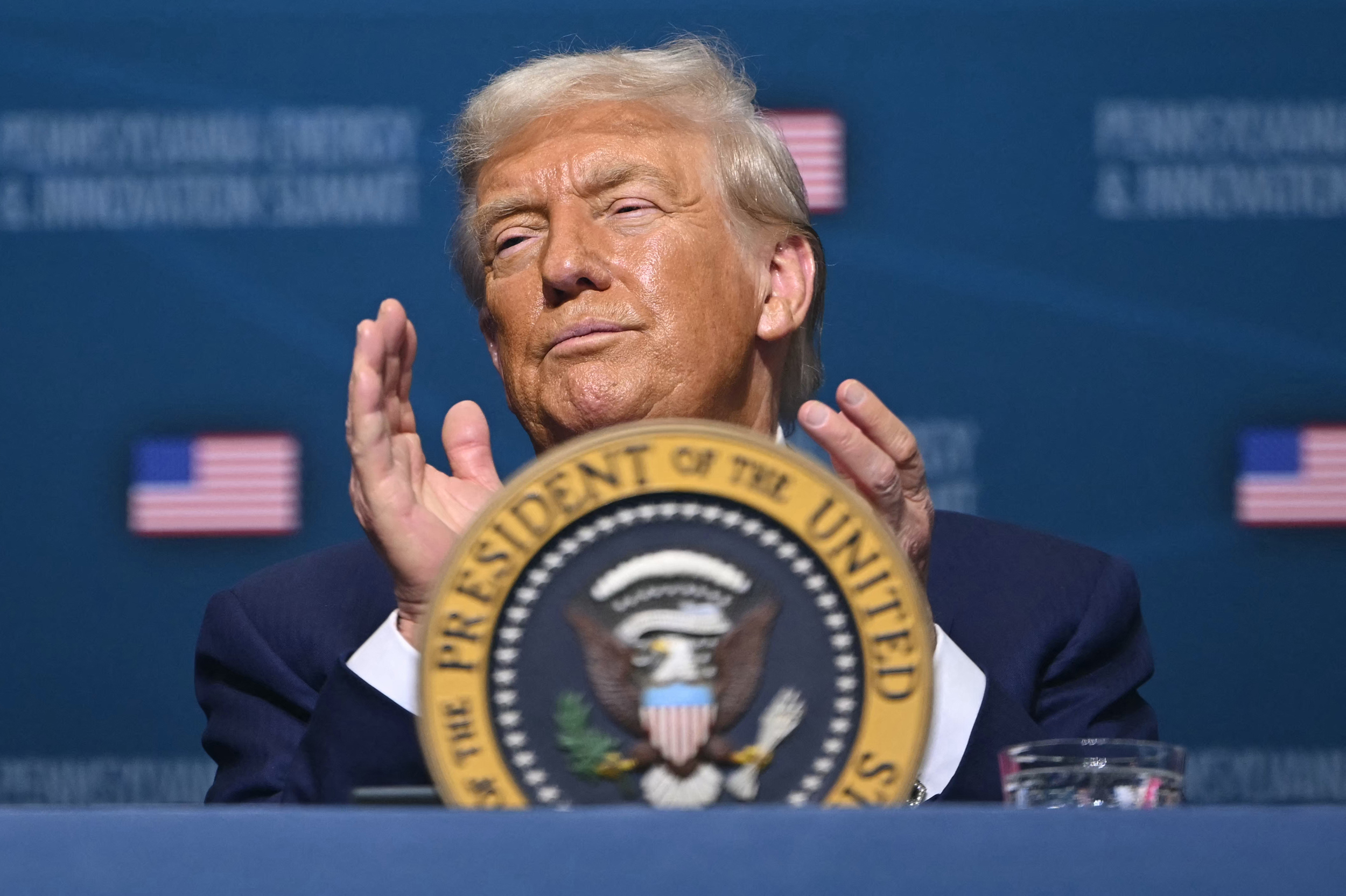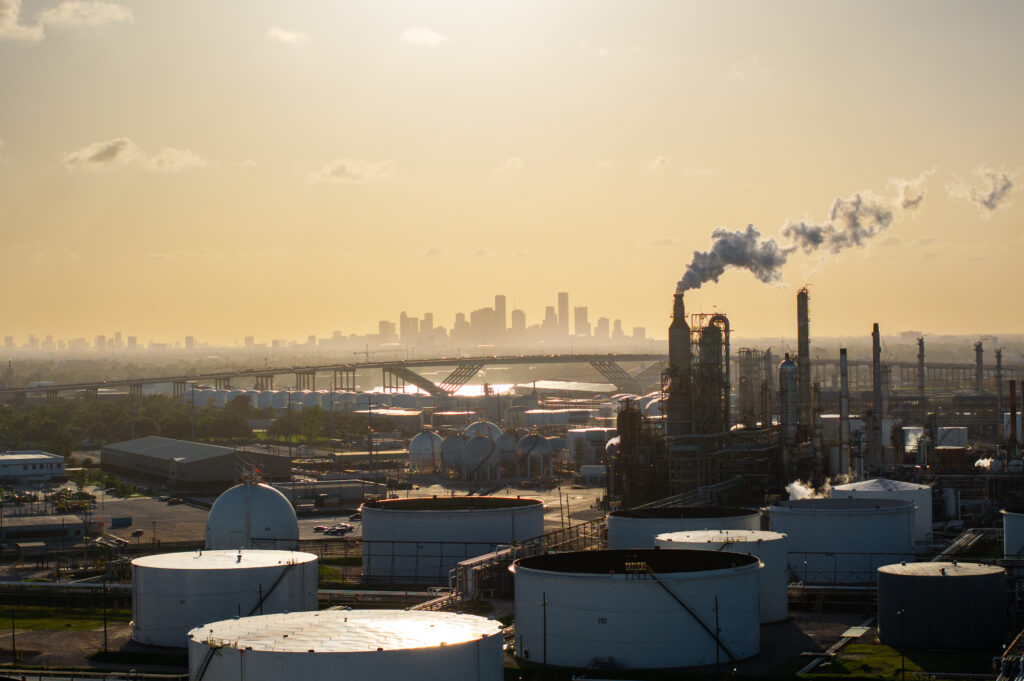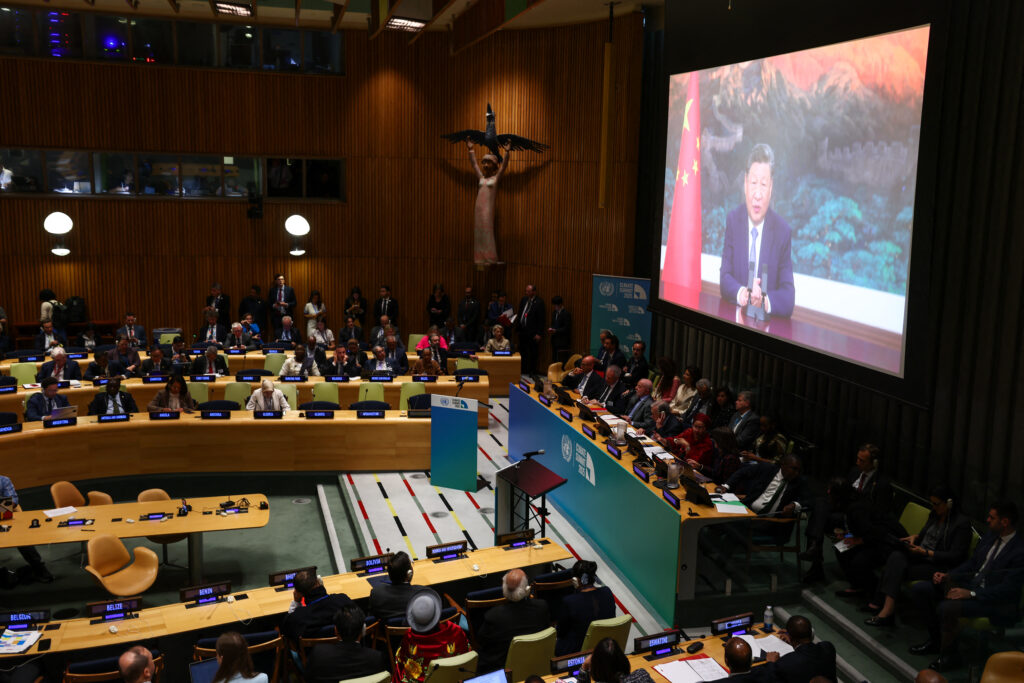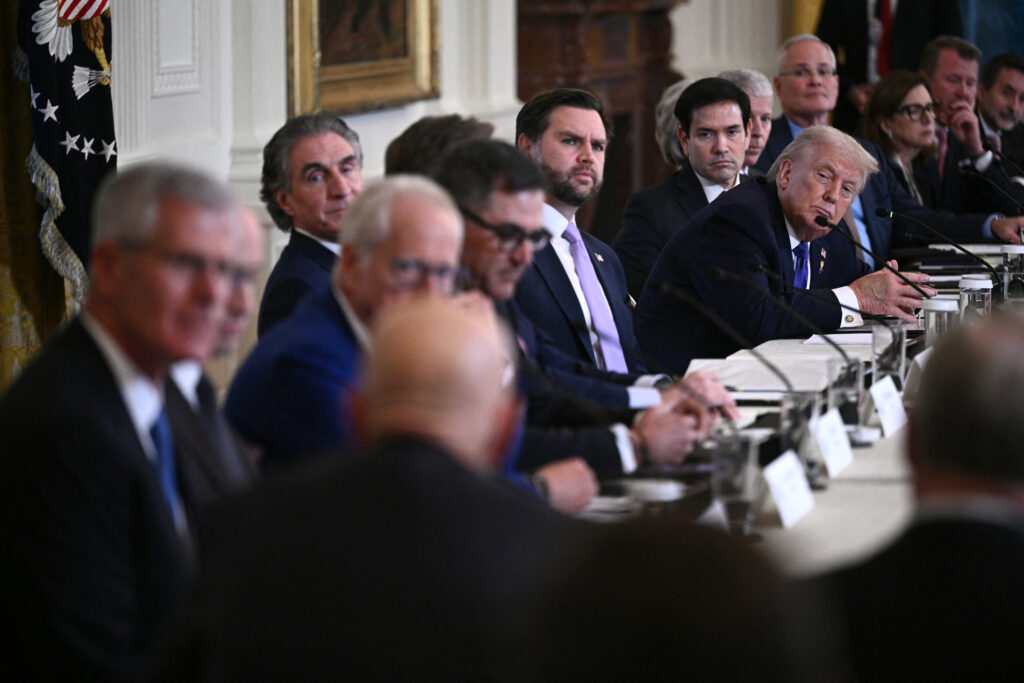This week in Nairobi, Kenya, a group of international humanitarian, business and government partners met to discuss an initiative to use renewable energy to provide power and internet access to medical facilities in sub-Saharan Africa that currently struggle to keep the lights on.
The program, called the Health Electrification and Telecommunications Alliance (HETA), aims to use solar panels and battery storage to ensure reliable power and communications access to 10,000 facilities in 11 countries that provide care for about 1.9 million people.
But the staff of the U.S. Agency for International Development, the lead agency bringing partners together to complete the project, wasn’t there.
As USAID is put under existential threat by the Trump administration, projects like HETA are thrown into jeopardy. Staff have been instructed not to show up to work, computer systems are disabled and international personnel are being recalled home.
“All of the USAID participants, even though they were already in Kenya, they were recalled three days ago,” former USAID official Daniel Kammen told Inside Climate News.
We’re hiring!
Please take a look at the new openings in our newsroom.
See jobs
Kammen, who served as USAID’s senior advisor for energy, climate and innovation during the Biden administration, left the agency in 2022 but is still involved in the HETA project.
The HETA website states that the project coupled $47 million in U.S. government funding with at least $100 million from other countries, private interests and social humanitarian groups. The USAID website and associated reports are currently inaccessible. Now the USAID delegation is no longer sitting at the table.
“They missed the meeting that they basically spent the last five years aiming towards,” Kammen said.
USAID, which is the U.S. government’s lead international humanitarian and development arm, was effectively shuttered this weekend, seemingly at the behest of Elon Musk, usually considered the richest man in the world, and a key figure in the first two weeks of President Donald Trump’s administration, though he holds no official title or appointed position.
Trump has said Musk is serving as a “special government employee,” heading the newly created Department of Government Efficiency—which is not an official department.
Democratic lawmakers and protesters gathered at USAID’s Washington, D.C., headquarters Monday to call attention to the efforts by the executive branch to shutter an agency that is funded by Congress.
“This is a constitutional crisis that we are in today,” Democratic Sen. Chris Murphy of Connecticut told reporters. “Let’s call it what it is. The people get to decide how we defend the United States of America. The people get to decide how their taxpayer money is spent. Elon Musk does not get to decide.”
Sen. Brian Schatz (D-Hawaii) pledged to delay confirmation on Trump’s nominees in the Senate until the issue is resolved.
“If you want to change an agency, introduce a bill and pass a law,” Schatz told reporters outside USAID headquarters. “You cannot wave away an agency that you don’t like or that you disagree with by executive order, or by literally storming into the building and taking over the servers.”
Sen. Andy Kim (D-N.J.), a former USAID employee, said Democrats will fight the efforts to dismantle the agency.
“This is all self-inflicted damage. We face real national security threats, and right now our adversaries/competitors are loving what they see—America at war with itself,” Kim posted on X.
Musk has made numerous posts to the X social media platform that he owns condemning USAID, including calling the agency a “criminal organization.”
Secretary of State Marco Rubio told reporters in El Salvador Monday that he was now “acting administrator” of USAID, and that some of its initiatives will be rolled into the State Department.
At a news conference Monday afternoon, Trump called USAID a “fraud” run by “radical lunatics.”
During the Biden administration, addressing climate change threats became an integral part of USAID’s mission, advancing renewable energy deployment and preserving rainforests and other critical ecological habitat.
Kammen, the former USAID official, said that in 2019 plans were scrapped to build a new coal-fired power plant in Kenya, near the UNESCO World Heritage site Lamu, thanks to the proliferation of wind and geothermal power. Now, thanks partly to uncertainty with U.S. involvement, the coal plant, backed by Chinese interests, might move forward again.
“This is something we had killed seven years ago because Kenya didn’t need it,” Kammen said. “And they had this really great opportunity to do more renewable energy, which produces more jobs, no pollution. But now this coal plant is back on the agenda.”
Kammen said the decision to cripple USAID will harm American interests abroad.
“Basically what will happen is that Russia and China will become the dominant players in many parts of the world where we want to have influence, but countries won’t trust us,” he said.
“This is about kindergarten-level geopolitics,” Kammen said. “If you want friends, and particularly if you want friends in areas of the world where there’s al Shabaab, there’s Islamic insurgencies, there’s all kinds of issues, you actually need to be a partner.”
The new move will hinder future U.S. humanitarian efforts, he said.
“This basically told any country that’s not sure, ‘Well, you should go with China, or you should go with Russia, not with the U.S.,” he said.
About This Story
Perhaps you noticed: This story, like all the news we publish, is free to read. That’s because Inside Climate News is a 501c3 nonprofit organization. We do not charge a subscription fee, lock our news behind a paywall, or clutter our website with ads. We make our news on climate and the environment freely available to you and anyone who wants it.
That’s not all. We also share our news for free with scores of other media organizations around the country. Many of them can’t afford to do environmental journalism of their own. We’ve built bureaus from coast to coast to report local stories, collaborate with local newsrooms and co-publish articles so that this vital work is shared as widely as possible.
Two of us launched ICN in 2007. Six years later we earned a Pulitzer Prize for National Reporting, and now we run the oldest and largest dedicated climate newsroom in the nation. We tell the story in all its complexity. We hold polluters accountable. We expose environmental injustice. We debunk misinformation. We scrutinize solutions and inspire action.
Donations from readers like you fund every aspect of what we do. If you don’t already, will you support our ongoing work, our reporting on the biggest crisis facing our planet, and help us reach even more readers in more places?
Please take a moment to make a tax-deductible donation. Every one of them makes a difference.
Thank you,

















